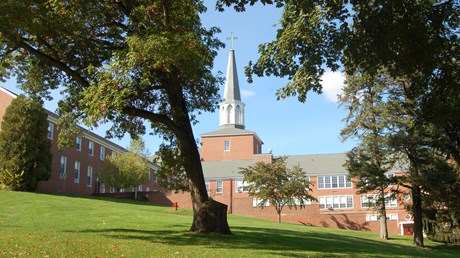The short-term financial gain of selling a residential campus doesn’t outweigh the long-term loss of embodied community.

There is no good news coming from freestanding seminaries, and there hasn’t been for some time. Gordon-Conwell’s closure of its Hamilton campus is simply the latest in a string of downsizing among evangelical seminaries.
Trinity’s Divinity school (TEDS) recently downsized its faculty, and Fuller Seminary consolidated its campus and programs a few years ago, shortly after Moody Bible Institute. The persistent attention to “the future of theological education” signals nothing more than the reality that whatever comes next will not be like what we once had.
There is always a temptation to market this future as a “pivot”—a courageous choice toward a brighter future. But talking about the sale of a residential campus in this way neglects the truth of what is lost. I’d like to tell you a little about what may soon be lost, with the hope that we might imagine another way forward for theological education.
Theological education is not like other forms of education. In evangelical spaces especially, it seeks to train those who are discerning a call to ministry. A “call to ministry” is a notoriously vague sense that may grow in intensity, but that may also get lost in the busyness of life. To heed this call, you must listen for it. You also must receive it from others. As a wise friend told me recently, you cannot hear someone’s call for them—but you can sometimes hear an echo.
As an adjunct instructor at Gordon-Conwell for the last seven years, I often heard these echoes.
When you teach a semester-long, in-person course, you get 30-plus hours, week after week, to form individuals into a community. It is a short-term community with ...
from Christianity Today Magazine
Umn ministry


.gif)

.gif)
.gif)
